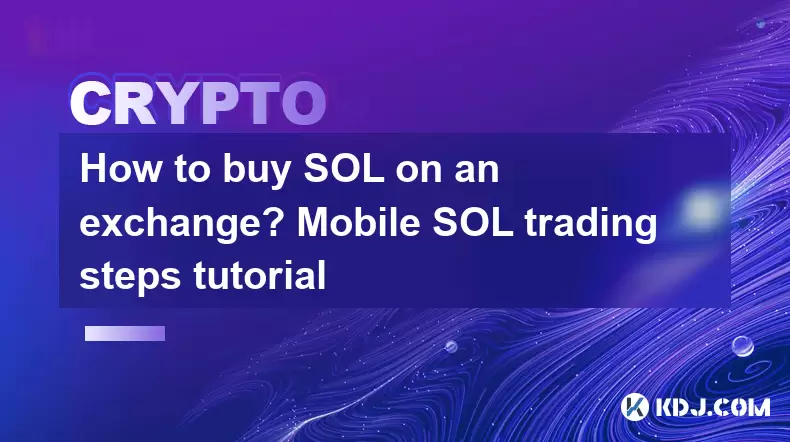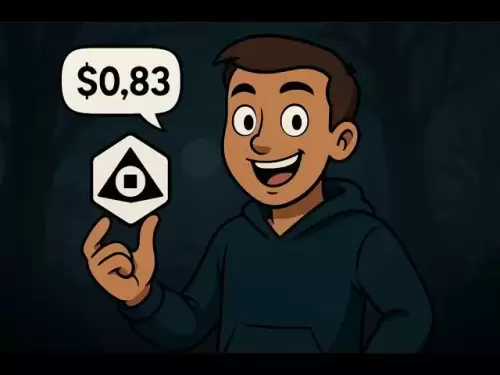-
 Bitcoin
Bitcoin $105,953.9980
3.06% -
 Ethereum
Ethereum $2,445.3292
6.68% -
 Tether USDt
Tether USDt $1.0006
-0.03% -
 XRP
XRP $2.1968
7.03% -
 BNB
BNB $643.2903
2.13% -
 Solana
Solana $144.2799
3.82% -
 USDC
USDC $1.0000
-0.03% -
 TRON
TRON $0.2739
0.49% -
 Dogecoin
Dogecoin $0.1642
4.47% -
 Cardano
Cardano $0.5834
5.49% -
 Hyperliquid
Hyperliquid $38.0741
2.80% -
 Sui
Sui $2.7741
7.56% -
 Chainlink
Chainlink $13.4107
11.26% -
 Bitcoin Cash
Bitcoin Cash $450.4828
-0.61% -
 UNUS SED LEO
UNUS SED LEO $9.1301
0.64% -
 Stellar
Stellar $0.2476
5.49% -
 Avalanche
Avalanche $18.0637
5.09% -
 Toncoin
Toncoin $2.9066
2.43% -
 Shiba Inu
Shiba Inu $0.0...01160
4.01% -
 Hedera
Hedera $0.1527
8.00% -
 Litecoin
Litecoin $84.6122
2.37% -
 Monero
Monero $317.6076
5.76% -
 Ethena USDe
Ethena USDe $1.0008
0.02% -
 Polkadot
Polkadot $3.4519
5.27% -
 Dai
Dai $1.0000
-0.03% -
 Bitget Token
Bitget Token $4.2835
5.62% -
 Uniswap
Uniswap $7.0443
9.78% -
 Pepe
Pepe $0.0...09964
7.41% -
 Pi
Pi $0.5391
4.64% -
 Aave
Aave $264.1743
11.26%
How to buy SOL on an exchange? Mobile SOL trading steps tutorial
Buying SOL on a mobile exchange involves choosing a reliable platform, setting up an account, depositing funds, and executing a purchase, all from your smartphone.
May 10, 2025 at 04:56 am

Buying SOL (Solana) on a mobile exchange is a straightforward process that allows you to quickly dive into the world of cryptocurrencies. Whether you're a seasoned trader or a newcomer, understanding the steps to acquire SOL on your mobile device can enhance your trading experience. This tutorial will guide you through the process of setting up an account, depositing funds, and executing your first SOL purchase on a mobile exchange.
Choosing the Right Mobile Exchange
Before you can buy SOL, you need to select a reliable mobile exchange that supports Solana trading. Some popular exchanges that offer mobile apps include Binance, Coinbase, and Kraken. Ensure that the exchange you choose is reputable, has a user-friendly interface, and supports SOL trading pairs. You can check reviews and user feedback to make an informed decision.
Downloading and Installing the Mobile App
Once you've chosen your exchange, the next step is to download and install their mobile app. Here's how you can do it:
- Visit your mobile device's app store: For iOS users, go to the Apple App Store; for Android users, head to the Google Play Store.
- Search for the exchange's app: Type the name of the exchange in the search bar.
- Download and install the app: Click on the app, then select "Download" or "Install". Wait for the app to be downloaded and installed on your device.
Creating and Verifying Your Account
After installing the app, you'll need to create and verify your account. Follow these steps:
- Open the app and select "Sign Up" or "Register": Fill in your personal details such as your name, email address, and create a strong password.
- Complete the verification process: Most exchanges require you to verify your identity to comply with regulatory standards. You'll need to upload a photo of your government-issued ID and possibly a selfie. Follow the on-screen instructions to complete this step.
- Enable two-factor authentication (2FA): For added security, enable 2FA. This usually involves linking your account to an authenticator app like Google Authenticator or Authy.
Depositing Funds into Your Account
With your account set up and verified, you can now deposit funds to buy SOL. Here's how:
- Navigate to the "Deposit" section: This is usually found in the app's main menu or under your account settings.
- Select your preferred deposit method: Options may include bank transfer, credit/debit card, or cryptocurrency transfer. Choose the method that best suits your needs.
- Enter the amount you wish to deposit: Follow the on-screen instructions to complete the deposit. Depending on the method, it may take a few minutes to several days for the funds to appear in your account.
Buying SOL on the Mobile App
Once your funds are available, you can proceed to buy SOL. Here's a step-by-step guide:
- Go to the trading section: This is often labeled as "Trade", "Market", or "Exchange".
- Search for SOL: Use the search function to find Solana (SOL). You'll see various trading pairs, such as SOL/USDT or SOL/BTC. Choose the pair that matches your deposited currency.
- Select the type of order: You can choose between a market order, which executes immediately at the current market price, or a limit order, which allows you to set a specific price at which you want to buy SOL.
- Enter the amount of SOL you want to buy: Input the quantity of SOL or the amount of money you want to spend. The app will show you the corresponding amount of SOL you'll receive.
- Review and confirm the order: Double-check all the details, then click "Buy" or "Confirm" to execute the order. You'll receive a confirmation once the transaction is complete.
Storing Your SOL
After purchasing SOL, you'll need to decide how to store it. You have two main options:
- Keep SOL on the exchange: This is convenient for frequent trading but comes with higher security risks. Ensure that you enable all available security features on the exchange.
- Transfer SOL to a personal wallet: For long-term storage, consider transferring your SOL to a secure wallet. You can use software wallets like Trust Wallet or hardware wallets like Ledger for enhanced security.
Frequently Asked Questions
Q: Can I buy SOL with a credit card on a mobile exchange?
A: Yes, many mobile exchanges support buying SOL with a credit card. However, you should check the specific exchange's policies and any associated fees before proceeding.
Q: How long does it take to buy SOL on a mobile exchange?
A: The time it takes to buy SOL depends on the deposit method. Bank transfers can take several days, while credit card transactions are typically faster, often completing within minutes.
Q: Is it safe to store SOL on a mobile exchange?
A: While mobile exchanges have security measures in place, storing large amounts of SOL on an exchange is generally less secure than using a personal wallet. It's advisable to transfer your SOL to a secure wallet for long-term storage.
Q: Can I trade other cryptocurrencies for SOL on a mobile exchange?
A: Yes, many exchanges allow you to trade other cryptocurrencies for SOL. You can typically find SOL trading pairs with popular cryptocurrencies like Bitcoin (BTC) and Ethereum (ETH).
Disclaimer:info@kdj.com
The information provided is not trading advice. kdj.com does not assume any responsibility for any investments made based on the information provided in this article. Cryptocurrencies are highly volatile and it is highly recommended that you invest with caution after thorough research!
If you believe that the content used on this website infringes your copyright, please contact us immediately (info@kdj.com) and we will delete it promptly.
- Crypto Liquidations Plummet: Time to Buy Today?
- 2025-06-25 08:25:12
- XRP Price Targets: Will XRP Hit $8?
- 2025-06-25 08:45:12
- Pi Pico W, One-Time Passwords, and Tokens: A Secure Combination
- 2025-06-25 08:25:12
- Crypto Altcoins in June 2025: Riding the Wave with Qubetics and Beyond
- 2025-06-25 08:45:12
- Altcoins, ROI, and Top Performers: Navigating the Crypto Landscape
- 2025-06-25 09:05:13
- Navigating the Crypto Seas: Bitcoin, Ethereum, DeFi, and Altcoins in a Volatile Market
- 2025-06-25 08:51:51
Related knowledge

How to customize USDT TRC20 mining fees? Flexible adjustment tutorial
Jun 13,2025 at 01:42am
Understanding USDT TRC20 Mining FeesMining fees on the TRON (TRC20) network are essential for processing transactions. Unlike Bitcoin or Ethereum, where miners directly validate transactions, TRON uses a delegated proof-of-stake (DPoS) mechanism. However, users still need to pay bandwidth and energy fees, which are collectively referred to as 'mining fe...

USDT TRC20 transaction is stuck? Solution summary
Jun 14,2025 at 11:15pm
Understanding USDT TRC20 TransactionsWhen users mention that a USDT TRC20 transaction is stuck, they typically refer to a situation where the transfer of Tether (USDT) on the TRON blockchain has not been confirmed for an extended period. This issue may arise due to various reasons such as network congestion, insufficient transaction fees, or wallet-rela...

How to cancel USDT TRC20 unconfirmed transactions? Operation guide
Jun 13,2025 at 11:01pm
Understanding USDT TRC20 Unconfirmed TransactionsWhen dealing with USDT TRC20 transactions, it’s crucial to understand what an unconfirmed transaction means. An unconfirmed transaction is one that has been broadcasted to the blockchain network but hasn’t yet been included in a block. This typically occurs due to low transaction fees or network congestio...

How to check USDT TRC20 balance? Introduction to multiple query methods
Jun 21,2025 at 02:42am
Understanding USDT TRC20 and Its ImportanceUSDT (Tether) is one of the most widely used stablecoins in the cryptocurrency market. It exists on multiple blockchain networks, including TRC20, which operates on the Tron (TRX) network. Checking your USDT TRC20 balance accurately is crucial for users who hold or transact with this asset. Whether you're sendi...

What to do if USDT TRC20 transfers are congested? Speed up trading skills
Jun 13,2025 at 09:56am
Understanding USDT TRC20 Transfer CongestionWhen transferring USDT TRC20, users may occasionally experience delays or congestion. This typically occurs due to network overload on the TRON blockchain, which hosts the TRC20 version of Tether. Unlike the ERC20 variant (which runs on Ethereum), TRC20 transactions are generally faster and cheaper, but during...

The relationship between USDT TRC20 and TRON chain: technical background analysis
Jun 12,2025 at 01:28pm
What is USDT TRC20?USDT TRC20 refers to the Tether (USDT) token issued on the TRON blockchain using the TRC-20 standard. Unlike the more commonly known ERC-20 version of USDT (which runs on Ethereum), the TRC-20 variant leverages the TRON network's infrastructure for faster and cheaper transactions. The emergence of this version came as part of Tether’s...

How to customize USDT TRC20 mining fees? Flexible adjustment tutorial
Jun 13,2025 at 01:42am
Understanding USDT TRC20 Mining FeesMining fees on the TRON (TRC20) network are essential for processing transactions. Unlike Bitcoin or Ethereum, where miners directly validate transactions, TRON uses a delegated proof-of-stake (DPoS) mechanism. However, users still need to pay bandwidth and energy fees, which are collectively referred to as 'mining fe...

USDT TRC20 transaction is stuck? Solution summary
Jun 14,2025 at 11:15pm
Understanding USDT TRC20 TransactionsWhen users mention that a USDT TRC20 transaction is stuck, they typically refer to a situation where the transfer of Tether (USDT) on the TRON blockchain has not been confirmed for an extended period. This issue may arise due to various reasons such as network congestion, insufficient transaction fees, or wallet-rela...

How to cancel USDT TRC20 unconfirmed transactions? Operation guide
Jun 13,2025 at 11:01pm
Understanding USDT TRC20 Unconfirmed TransactionsWhen dealing with USDT TRC20 transactions, it’s crucial to understand what an unconfirmed transaction means. An unconfirmed transaction is one that has been broadcasted to the blockchain network but hasn’t yet been included in a block. This typically occurs due to low transaction fees or network congestio...

How to check USDT TRC20 balance? Introduction to multiple query methods
Jun 21,2025 at 02:42am
Understanding USDT TRC20 and Its ImportanceUSDT (Tether) is one of the most widely used stablecoins in the cryptocurrency market. It exists on multiple blockchain networks, including TRC20, which operates on the Tron (TRX) network. Checking your USDT TRC20 balance accurately is crucial for users who hold or transact with this asset. Whether you're sendi...

What to do if USDT TRC20 transfers are congested? Speed up trading skills
Jun 13,2025 at 09:56am
Understanding USDT TRC20 Transfer CongestionWhen transferring USDT TRC20, users may occasionally experience delays or congestion. This typically occurs due to network overload on the TRON blockchain, which hosts the TRC20 version of Tether. Unlike the ERC20 variant (which runs on Ethereum), TRC20 transactions are generally faster and cheaper, but during...

The relationship between USDT TRC20 and TRON chain: technical background analysis
Jun 12,2025 at 01:28pm
What is USDT TRC20?USDT TRC20 refers to the Tether (USDT) token issued on the TRON blockchain using the TRC-20 standard. Unlike the more commonly known ERC-20 version of USDT (which runs on Ethereum), the TRC-20 variant leverages the TRON network's infrastructure for faster and cheaper transactions. The emergence of this version came as part of Tether’s...
See all articles
























































































